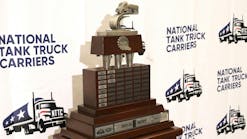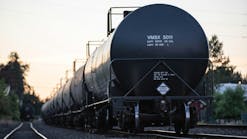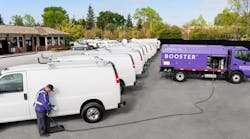Booster and Ambipar are partnering to help customers remove and remediate leaking underground storage tanks (USTs), while also ensuring continuity in their fueling operations.
Long considered a necessary staple of conventional fueling infrastructure, USTs store fuel at gas stations, fleet yards, businesses, government facilities, and more. But older USTs are aging and deteriorating, leaking petroleum and other hazardous substances into the surrounding environment and commanding attention from the U.S. Environmental Protection Agency (EPA), the companies said.
There are more than 550,000 leaking tanks nationwide, according to the EPA, which notes that “the greatest potential hazard” is contamination of groundwater, the source of drinking water for nearly half of all Americans. Tank removal and replacement can require significant capital expenditure, as the average cleanup costs $130,000, and extensive soil contamination can send the figure higher. Corrective action for leaks that affect groundwater can reach upward of $1 million.
Once a leak is confirmed, UST owners and operators are legally required to take immediate action to minimize or eliminate the source of the leak.
This is where Ambipar and Booster come in.
Ambipar Response offers tank removal and remediation services, including compliance with regulations, early identification of potential environmental issues, required reporting, and soil remediation. During and after tank removal, Booster offers mobile fuel delivery to ensure fleet vehicles can be easily fueled on-site with no disruption to operations.
“UST removal and remediation is a complicated matter, requiring full compliance with individual state regulations that govern corrosion protection, inspections, monitoring, secondary containment, and more,” said Allan Blanchard, regional VP of Ambipar Response. “By partnering with Booster, we are able to offer our customers a complete solution and migration path away from USTs for long-term fueling and energy solutions.”
Once the tank has been removed, Booster’s UST migration plan enables customers to explore sustainable solutions by ending their reliance on USTs and adopting Booster’s mobile Fuel-as-a-Service model. Delivering fuel directly to vehicles eliminates the need for USTs—and for costly and time-consuming trips to the gas station, Booster said.
“By investing in mobile, modular Infrastructure-as-a-Service solutions, customers are able to focus on running their core business, and not on their fueling operations,” said Barry Russell, VP of sales and alliances with Booster. “Booster’s mobile fueling delivery service transitions customers away from CapEx investment and shifts it to OpEx, putting them on a sustainable path forward.”











